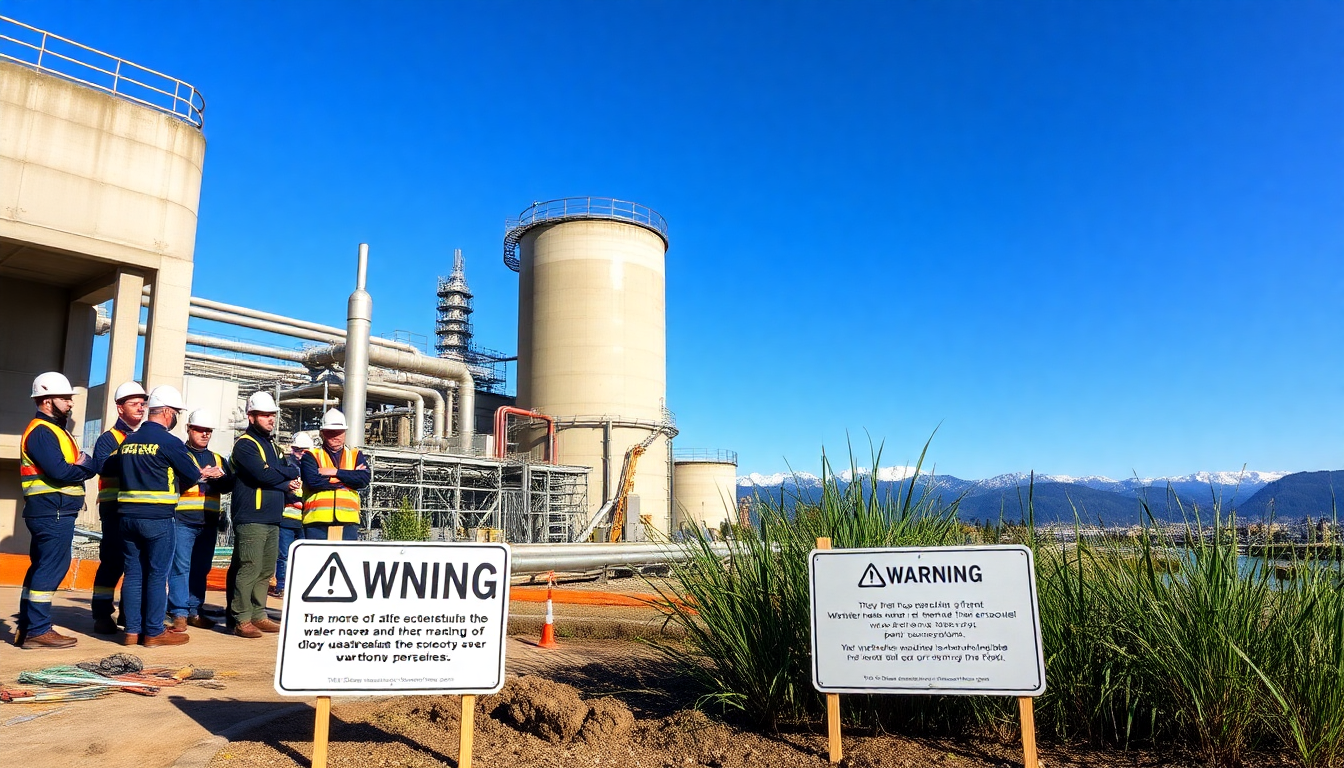Table of Contents
The recent suspension of the review of the North Shore Wastewater Treatment Plant by Metro Vancouver has certainly raised some eyebrows and sparked lively debates among local officials and residents. What’s really going on behind the scenes? New insights hint that ongoing litigation with a former contractor could be shaping the board’s choices.
With significant budget overruns at stake, the repercussions of this decision might hit harder than just the immediate community.
What’s the story behind the review suspension?
During a recent meeting, Metro Vancouver’s directors made the surprising move to shelve a crucial evaluation of the North Shore Wastewater Treatment Plant.
So, why is this decision flying under the radar? Despite attempts to uncover the voting dynamics, the directors have kept quiet, citing the private nature of the meeting as a reason. However, the fallout from this choice is profound, especially considering the hefty financial implications tied to the plant’s operational costs.
Insiders suggest that legal counsel played a significant role in deciding to halt the review. This legal advice appears to stem from concerns over ongoing litigation with Acciona Wastewater Solutions LP, the former contractor currently embroiled in a lawsuit valued at $250 million, covering damages and unpaid bills.
This legal entanglement complicates not just the review process but also raises questions about the Metro Vancouver board’s accountability in managing public funds.
How is the public responding?
The decision to pause the review hasn’t gone unnoticed in the political sphere.
Critics, including Municipal Affairs Critic MLA Tony Luck, are sounding the alarm, urging Premier David Eby to step in and push for the review’s continuation. This growing concern highlights a serious apprehension about transparency and accountability within Metro Vancouver’s governance.
Are we really getting the full picture, or might a potential settlement include non-disclosure agreements that could further cloud the financial realities of the wastewater treatment project?
In response to these developments, Premier Eby has stated that the province will dig into the reasons behind the Metro Vancouver board’s decision. He emphasized the importance of accountability to taxpayers, reaffirming the public’s right to know how funds are managed, especially for essential services like wastewater treatment.
What’s next in the timeline of litigation?
The review of the North Shore Wastewater Treatment Plant was first announced back in February, but it seems Metro Vancouver is hitting a standstill. They’ve reported no progress, stating that they have not received invoices from the MWGK Independent Review Team, nor do they expect any in the near future. This stagnation raises some serious questions about the board’s oversight and the overall management of the project.
With litigation against Acciona not set to kick off until 2027, the future of the review hangs in the balance. This lengthy timeline could delay crucial assessments and create even more financial strain on Metro Vancouver’s budget. It’s a stark reminder of the challenges public entities face when juggling legal disputes while trying to remain transparent and accountable to the public.
In conclusion, the decision to suspend the review of the North Shore Wastewater Treatment Plant reflects larger issues of governance, accountability, and fiscal responsibility within Metro Vancouver. As this situation evolves, it’s vital for all involved to push for transparency and ensure that taxpayers’ interests are front and center amidst ongoing legal challenges. Are we going to let legal complications overshadow the public’s right to know?





